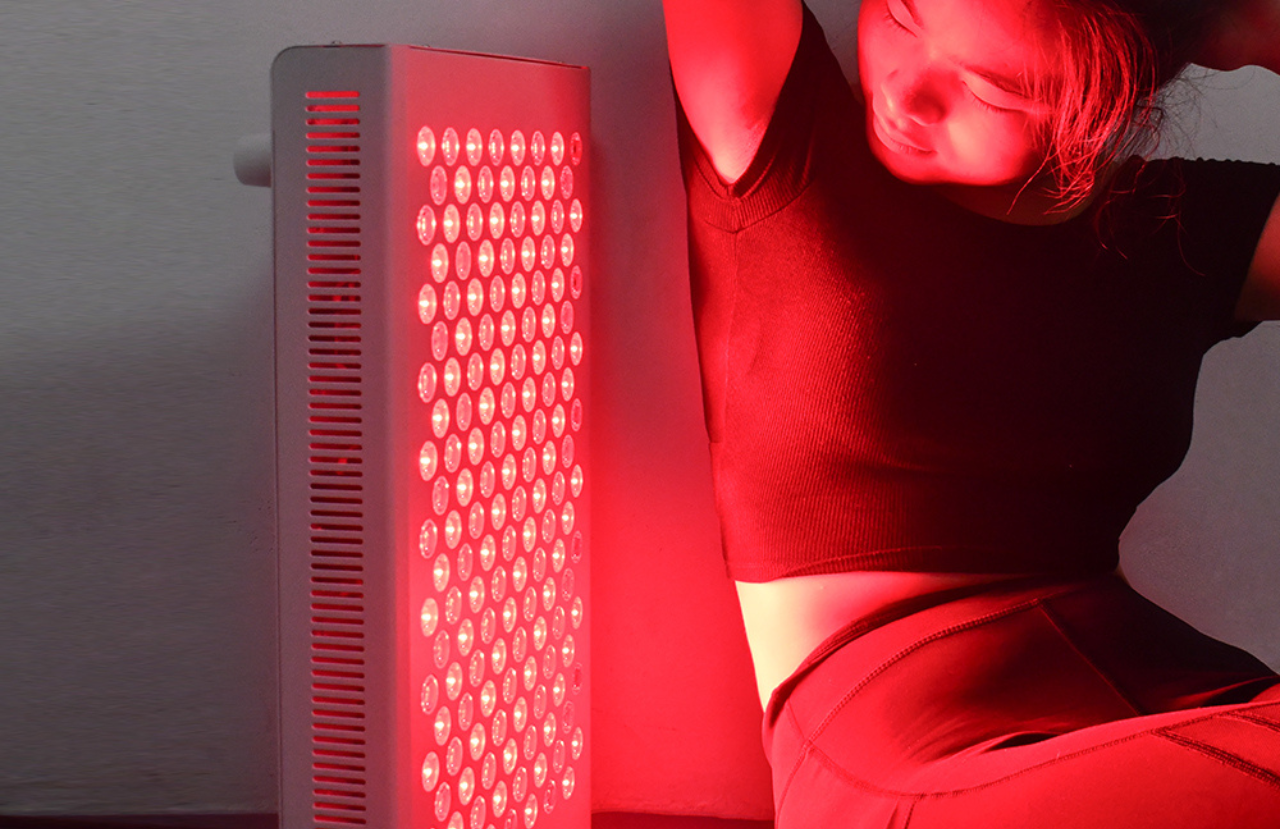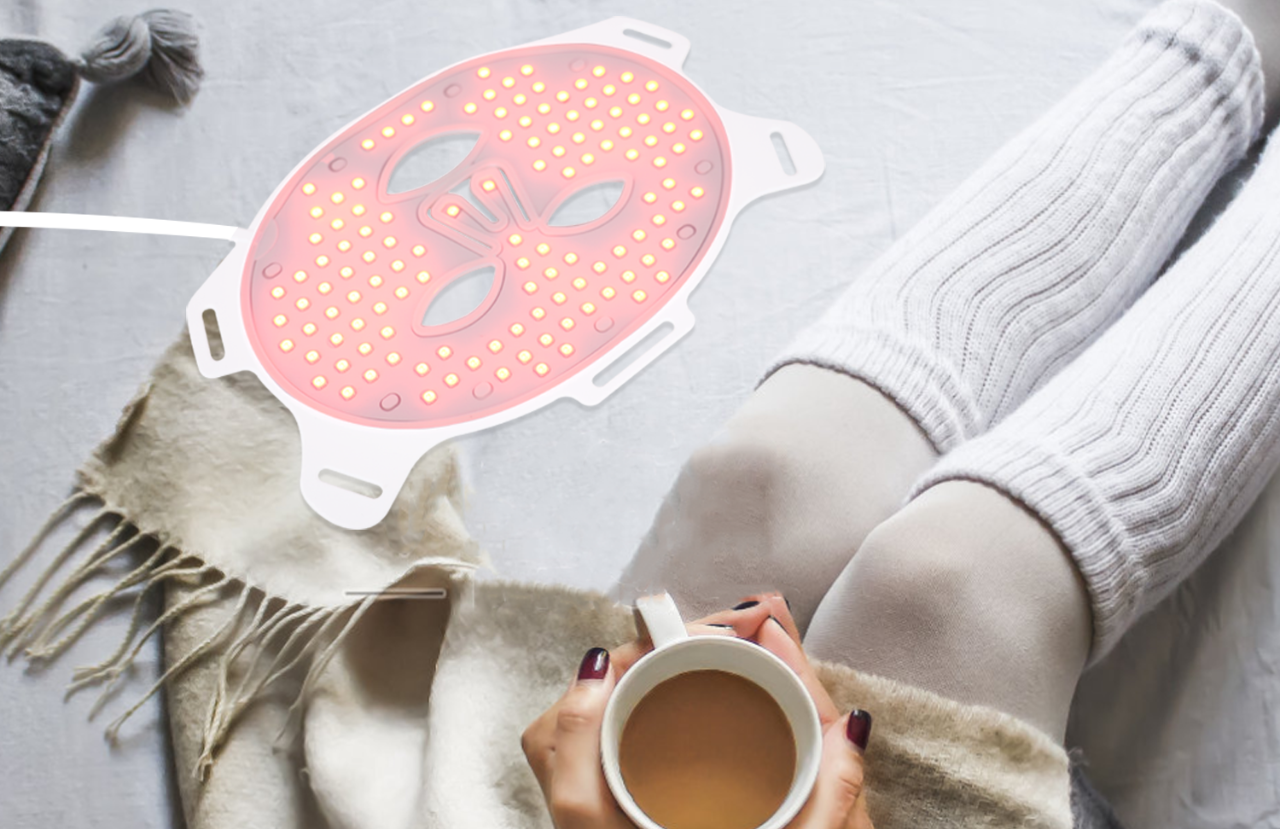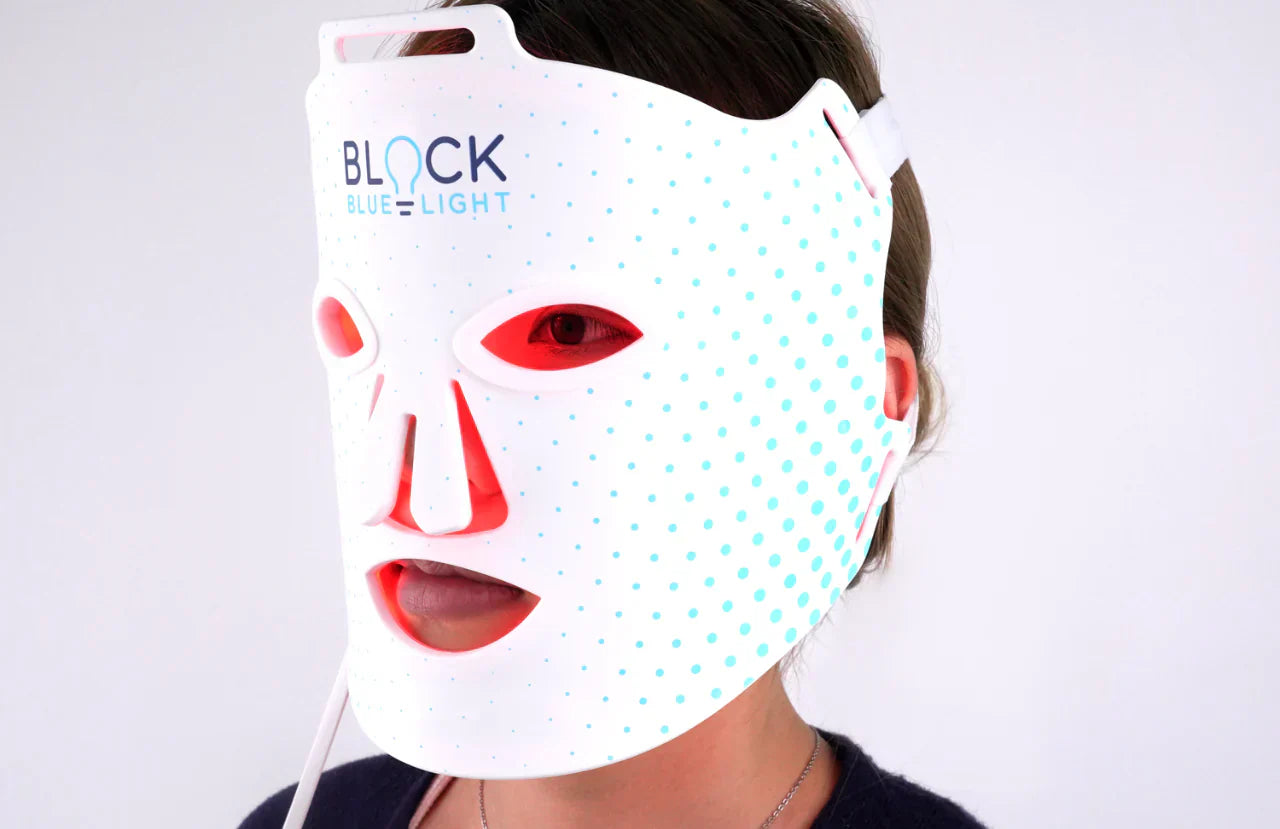With technology being part of our world we are exposed to more blue light than ever, and it begs the question, “is blue light bad for your eyes”? Good vision is essential to our quality of life, and for most of us, our livelihood.
The majority of us know by now that exposure to the blue light from electronics within an hour or two of bedtime makes it harder to fall asleep. Light in the bedroom emitted by LED lights also makes it harder to stay asleep. But what about actual damage to our eyes?
We look at what the research says and precautionary measures that are easy to implement so that you can use technology without worrying.
What is Blue Light?
The short answer is that blue light is the type of light emitted by the screens of electronic devices such as cellphones, computers, and televisions. You can actually tell in the dark or if you look at these screens from a certain angle that the light has a blueish tinge. Blue light is also present in sunlight, this is a bit harder to see, sunlight certainly doesn’t look blue.
You see, different types or colours of light have different frequencies and wavelengths. For simplicity, we’ll look at wavelengths. We can see light waves from 400 nanometres which are violet all the way to light waves of 700 nanometres which is red.
Sunlight contains violet, blue, indigo green, yellow, orange, and red light frequencies which results in white light. Fluorescent lights also emit a lot of blue light.

What is The Truth About Blue Light Eye Damage?
High energy blue light, found in the 415 to 450-nanometre range can cause retinal degeneration. Studies have found a positive link between lower energy blue light (450 to 500-nanometre range) such as the type emitted by many electronic devices and damage to vision, there is enough evidence to warrant concerns.
Many older people who have been exposed to electronics for two decades or more develop cataracts. This can also be attributed to spending many hours in the sun without wearing a hat or adequate sunglasses. This is due to both UV light and blue light.
A review of studies on age-related macular degeneration (deterioration of vision) and blue light have seen a link, particularly after cataracts surgery. Cataracts protect the eye from light, and without this and the lower melanin content in the eye, blue light speeds up the deterioration of vision.
Our eyes are protected by melanin, the same thing that gives colour to our skin and hair. As we age, we start losing that protection. People in their 60’s only have about half the amount of melanin in their eyes compared to when they were in their 30’s.
It’s not just people over 50 who need to take care of their eyes. Fluorescent lighting and sitting in front of a computer screen for several hours a day is harsh on the eyes. Anyone who works in this kind of environment and has tired eyes that feel strained at the end of each day can attest to that.
Did you know that people under the age of 30 haven’t developed sufficient lens pigmentation to offer protection?
How Does Blue Light Damage The Eyes
Our eyes allow us to see by letting light in through the pupils. This light is then focused onto the retina which is a light-sensitive membrane. The retina is most sensitive to blue light. Photo-oxidation can occur due to overexposure which releases free radicals. Just as overexposure to the sun starts to damage our skin via free radicals, so excess blue light starts to damage the retina.

How to Protect Your Eyes
Of course, cutting down your exposure would be a very effective way to reduce the chance of blue light eye damage, and certainly, with children, this may be done with more ease.
But blocking or filtering out blue light is a much easier suggestion than asking everyone to cut down on time behind a screen. With many jobs involving computers and offices often being lit with fluorescent lights, we come home to spend time in front of the TV or our phones, and for some, even more time on a computer. At Block Blue Light, we have a range of options that will fit easily into your lifestyle and we cater for kids and adults.
Blue Light Blocking Glasses
Daylight computer glasses are a great way to reduce eye strain and filter out blue light, which is especially important closer to bedtime. Some options fit over spectacles and there are options for children too.

Studies suggest that blue light glasses don’t hamper vision and had anti-glare benefits and may be an effective way to protect the eyes while working on the computer and reduce eye strain. Using blue light blocker glasses with red or orange lenses can be beneficial for relieving eye strain after a day at the office and for helping you to sleep better at night.
Eye-Friendly Lighting
The blue blocking light bulbs and lighting range include bulbs that range from orange to red, a red light blue light blocking torch, an amber book light, and even red light therapy panels. These lights are gentle on your eyes and have the added bonus of helping you to fall asleep faster.

Blue Light Phone Filters
Installing a blue light filtering app on your phone is very helpful. Not all apps can work intuitively or provide effective protection without sacrificing visibility during the day.
If this is the case with your chosen app or you just don’t want to add another app to your phone, check out our blue blocking screen filters for iPhones. These screen filters also serve as screen protectors while blocking the blue light from your phone at all times without compromising on visibility.

Other Tips to Reduce Blue Light Exposure
- Set your computer screen colours to a warmer setting
- Adjust the angle of your computer to prevent glare
- Take frequent breaks from your computer, preferable every 20 minutes to focus on something further away for 20 seconds or so
- Go for a walk or sit in a room that makes use of natural light during longer breaks
Is There Any Benefit to Blue Light?
While we need to protect our eyes from overexposure to blue light, there are a few benefits to it as well, particularly in the morning. As mentioned before, sunlight naturally contains blue light and getting just a few minutes regularly will be enough to reap the benefits without risking skin or eye damage caused by too much sun.
Here’s how it helps us:
- It helps to regulate our sleep-wake cycle: Blue light regulates our circadian rhythm. Letting some morning sunlight in is a good idea or even sitting outside. Just don’t forget to wear sunscreen and sunglasses if you are going to be in the sun for longer than 20 minutes.
- It helps us feel alert: Another bonus of morning light is that it helps us feel energized. This is also why bright light, particularly cold white light, at night will keep you up.
- It supports focus: Blue light helps with cognitive tasks such as focus and memory.
- It boosts our mood: This is especially true of people who struggle with seasonal affective disorder (SAD). Spending some time in the sun is a very effective treatment. Light therapy boxes are an alternative when this isn’t possible.
- It helps to develop children’s eyes: We are referring to sunlight here. A lack of sunlight and too much screen-time are both risk factors for developing near-sightedness.
How Much Blue Light is Too Much?
There isn’t any conclusive data on exactly how much exposure is too much. Just a few decades ago, we weren’t spending much time on electronic devices. People were usually only exposed to artificial blue light when watching television. Studies are ongoing and will hopefully give more detailed guidelines in future.
If you experience eye strain, headaches, or feel your eyes going dry, you could definitely benefit from using blue light blocking glasses and taking frequent breaks from the computer. At very least, use eye-friendly lighting in your home.
There is no question that blue light has a big impact on our lives and that too much of it can lead to negative effects on our eyes. Using the right tools can reduce the risk of retinal degeneration and even prevent it.
This is especially important for people under 30 and those who are over 50. This is because our eyes don’t have enough of the natural defense that the pigment, melanin, provides. But we should all be taking preventative measures to protect our eyes, no matter how old we are.
Blue blocking computer glasses are an easy and effective solution. Installing blue light filter applications on your computer and smartphone is also helpful. Using warm-toned lighting in your home will protect your eyes and help you to sleep better.







